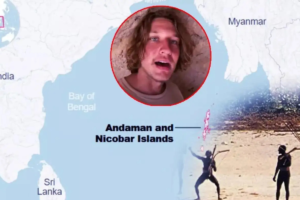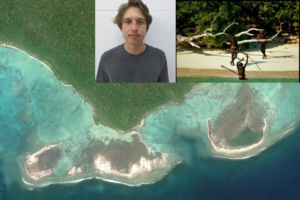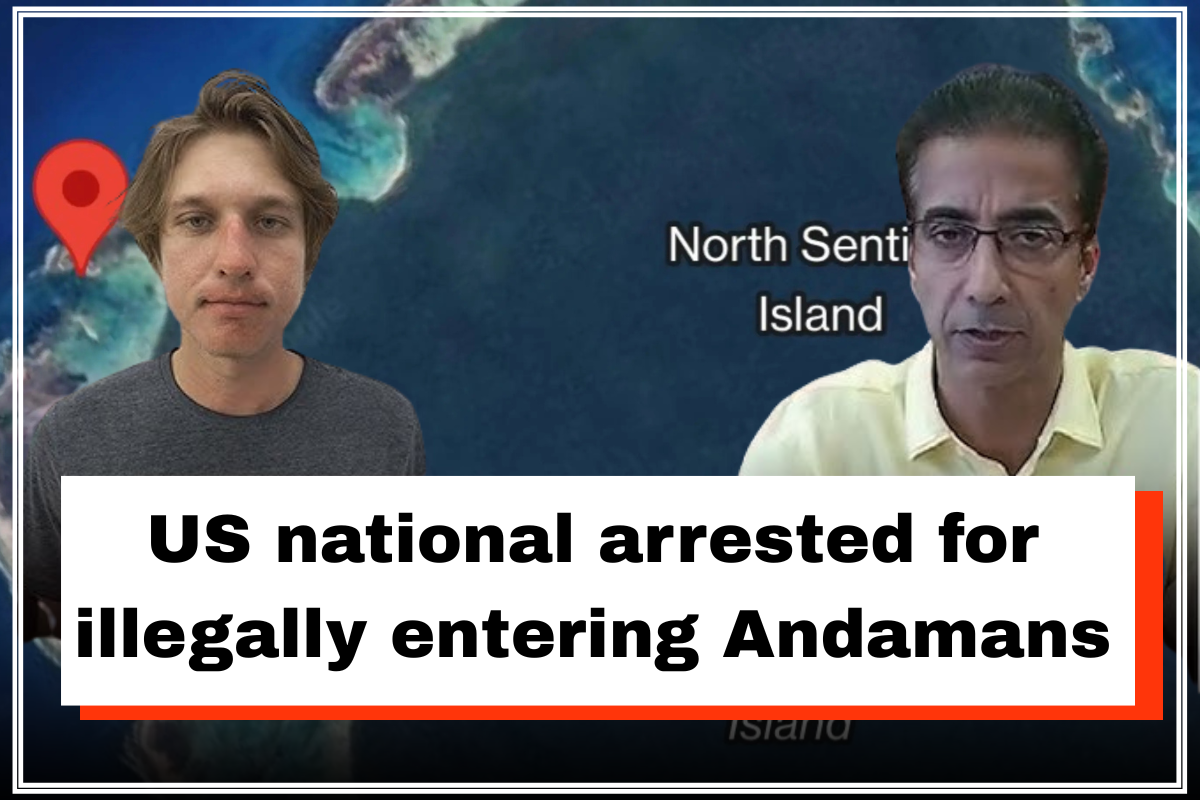American YouTuber Arrested After Illegally Attempting Contact with North Sentinel Tribe
In the early hours of March 29, 2025, a lone inflatable dinghy bobbed silently across the turquoise waters of the Indian Ocean. Its sole occupant, 24-year-old Mykhailo Viktorovych Polyakov, was not your typical tourist. A self-proclaimed adventurer and social media content creator from the United States, Polyakov was not there to enjoy the white-sand beaches or explore coral reefs. His destination was far more mysterious—and infinitely more dangerous: North Sentinel Island.
Located in the Bay of Bengal, North Sentinel is home to the Sentinelese, an uncontacted Indigenous tribe known for violently rejecting any and all outsiders. Indian law has long prohibited any attempt to land on or even approach the island within a radius of five nautical miles. Despite this, Polyakov set out on what would become one of the most controversial journeys of recent times.
Armed with a GoPro, a can of Diet Coke, and a single coconut, Polyakov hoped to film what he believed would be a historic and exclusive encounter with one of the last isolated tribes on Earth. What he found instead was a firestorm of international outrage, legal trouble, and a harsh reminder that some frontiers are not meant to be crossed.

Man Behind the Camera
Polyakov was not new to extreme travel. On his YouTube channel, which had amassed a modest following, viewers could find footage of him navigating conflict zones, trekking through politically unstable regions, and interviewing people in places few dared to visit. He had previously uploaded vlogs from remote Afghan villages—some of which showed him interacting with local militias and even handling firearms. His tagline? “Exploring the world’s wildest places, no matter the cost.”
To many, he was a fearless traveler. To others, he was a reckless provocateur seeking online fame at the expense of local laws and ethical boundaries.
Friends and online followers described him as “obsessed” with the idea of uncontacted tribes. In one livestream posted a few months earlier, Polyakov talked about the Sentinelese with a mix of fascination and romanticism, referring to them as “the last real humans untouched by modern civilization.”
“Just imagine what they could teach us,” he said in the video. “Everyone’s afraid of them, but I think they’re just misunderstood.”
It was clear that he had been planning his trip to North Sentinel for months, if not years. According to Indian police, his research included tidal charts, satellite imagery, and navigation routes from the mainland to the island. Despite the danger—and the law—he saw the journey as his ultimate adventure.
 YouTuber Arrested
YouTuber Arrested
Landfall and Arrest
On March 29, using GPS navigation and satellite tracking, Polyakov reached the island’s northeastern shore at precisely 10 a.m. He reportedly scanned the coastline with binoculars in hopes of spotting the elusive tribe but found no signs of life. Undeterred, he stepped ashore, leaving behind the coconut and soda as a peace offering—symbols he believed would signal friendly intent. He collected sand samples, recorded video footage, and soon returned to his boat.
What he didn’t know was that the Indian Coast Guard had already been alerted to suspicious maritime activity in the area. Surveillance teams had been monitoring GPS pings near North Sentinel and noticed a breach of the protected zone. When Polyakov returned to Port Blair on March 31, he was promptly detained by local authorities.
He was charged with violating the Protection of Aboriginal Tribes Regulation, a law that criminalizes any attempt to approach or contact protected Indigenous groups. The offense carries a potential sentence of up to five years in prison, along with significant fines.
The Sentinelese are considered one of the most isolated tribes on Earth. Believed to have lived on the island for over 60,000 years, they have steadfastly resisted contact with the outside world. Their rejection of modern civilization is not merely a cultural quirk—it is a means of survival. Because they have remained genetically and socially isolated for millennia, they lack immunity to common diseases such as influenza, measles, and the common cold.
Contact with outsiders could easily trigger an epidemic capable of wiping out the entire tribe.
Tragically, history has shown the consequences of ignoring this reality. In 2006, two Indian fishermen were killed by the Sentinelese after their boat accidentally drifted ashore. In 2018, American missionary John Allen Chau made headlines around the world when he attempted to convert the tribe to Christianity. He was shot with arrows upon landing and his body was never recovered.
The Indian government has since doubled down on enforcing the island’s restricted status. Patrols are conducted regularly, and signs warn would-be adventurers of the deadly consequences of trespassing.
Calculated Risk
According to statements released by the police, Polyakov admitted during interrogation that he was well aware of the island’s legal and cultural protections. However, he believed that his offering and “respectful approach” would set him apart from past intruders.
“He claimed he was motivated by a passion for discovery and a desire to undertake extreme challenges,” an officer reported. “He thought the risks were worth the potential reward.”
Officials said they recovered his GoPro footage, which showed Polyakov’s landing and his attempts to attract attention by blowing a whistle from his inflatable boat. No Sentinelese were seen in the footage, but authorities deemed the incident a clear violation of India’s laws.
The Ministry of External Affairs notified the U.S. Embassy, which has since confirmed that it is aware of the situation. A spokesperson for the State Department declined further comment, citing privacy concerns.
Polyakov’s family has remained silent, and multiple attempts by journalists to contact relatives have gone unanswered.




